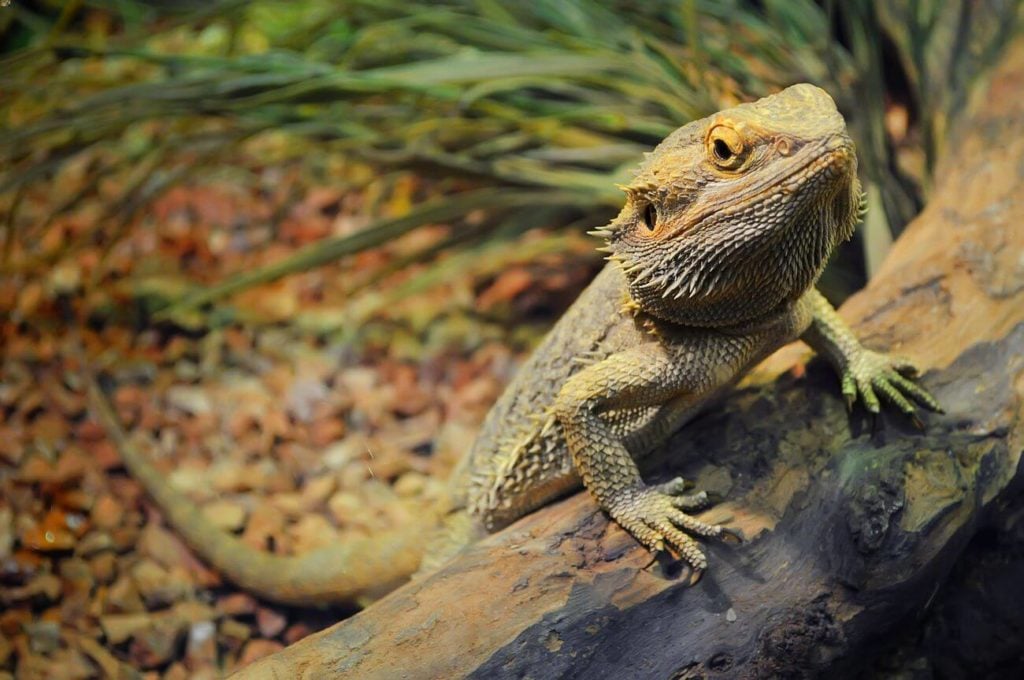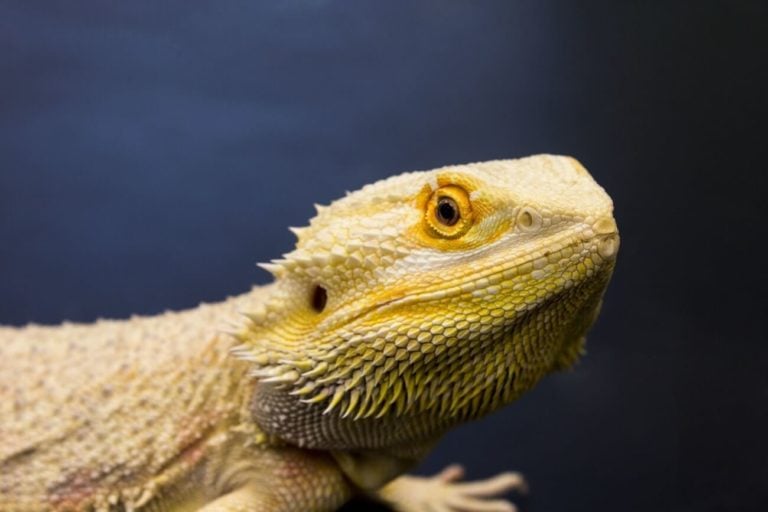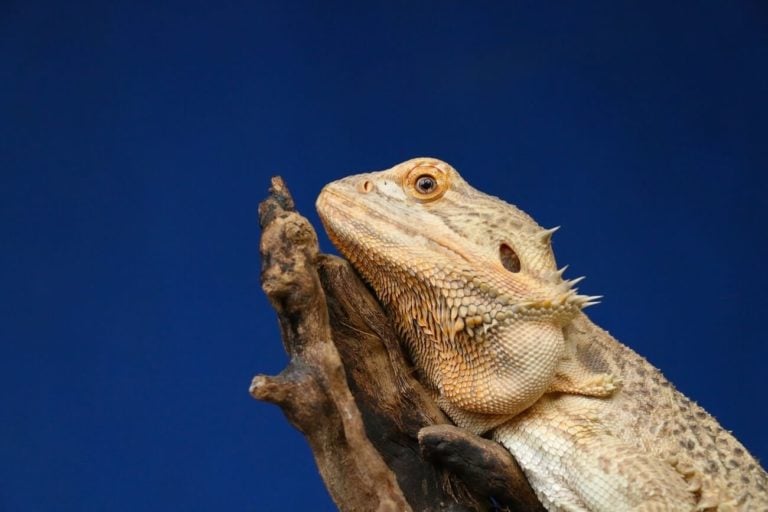Many newer owners want to know if bearded dragons can eat grapes or not. Grapes are an incredibly convenient (and cheap) food, so it’s a natural question!
This resource will answer that question in as much detail as you want. You’ll get the short answer (below), but also the reason why.
If you’re serious about providing your beardie with the best possible care, we recommend taking the extra time to read the full thing!
Table of Contents
Can Bearded Dragons Eat Grapes?
Yes!
It’s completely safe for bearded dragons to eat grapes (under a few conditions). Grapes are just one of the many fruits these reptiles can eat.
In fact, bearded dragons usually enjoy eating fruits more than vegetables and greens. Your beardie can eat grapes with or without the skin on them, but they should not eat grape seeds.
This means it will be your job to check every grape for seeds before you give it to them.
How Often Can They Have Them?
You should only feed your beardie grapes occasionally. You can serve them as a special treat, make a dressing out of them, or rub them on greens to make them more appetizing.
Your bearded dragon’s diet should consist mainly of insects and vegetables and greens (the ratio changes with age). While bearded dragons love foods like grapes, they should always make up the least of your beardie’s diet.
It’s important to have a broad understanding of their overall food requirements before you start feeding them grapes. This will allow you to keep everything balanced!
Why You Should Limit The Amount Of Grapes They Eat
There are a few reasons you will want to limit the number of grapes you feed your bearded dragon:
First, grapes contain oxalates.
Oxalates bind to minerals, such as calcium in the body. When oxalates bind to calcium, it is not able to be absorbed into your beardie’s body, which can lead to health issues. While grapes contain relatively few oxalates, feeding too many of them can lead to calcium deficiencies in bearded dragons.
Second, grapes contain a lot of water.
Bearded dragons naturally live in hot desert climates and do not need a lot of water to survive (don’t forget that you should still provide your beardie with a water bowl).
However, bearded dragons get most of the water they need from their food. When your beardie consumes too much water, they can develop diarrhea. Diarrhea can lead to dehydration, which can result in other health problems.
Expert Tip: Signs of dehydration in bearded dragons include wrinkly skin, sunken eyes, and feces that are missing the white part. You can also check to see if your beardie is dehydrated by gently lifting a bit of its skin away from its body and releasing it.
If the skin snaps back into place, your bearded dragon is sufficiently hydrated. However, if it takes some time for the skin to go back into place, your lizard is dehydrated.
While grapes contain fiber, which is good for bearded dragons, they also contain sugar and fruit acid, which aren’t so good for your beardie.
Finally, grapes contain seeds which can lead to impaction.
This means that your beardie cannot have a bowel movement. If your beardie cannot defecate for too long, they can get very sick or even die.
If you notice that your lizard is not defecating after eating grapes, there are a few things you can do to try to help them have a bowel movement.
Try giving your bearded dragon a warm bath. Make sure the water level does not go past their knees or elbows. Allow your beardie to soak in the water for about 15 minutes, and be sure to supervise your lizard while they are in the bath.
A homemade laxative may also help your bearded dragon if necessary. You can give your lizard three to four drops of olive oil, one teaspoon of pumpkin puree diluted with water, or a diluted juice mixture. To make the diluted juice, mix one part water to three parts 100% sugar-free juice.
Gently rubbing your lizard’s belly may also help them have a bowel movement.
If your bearded dragon doesn’t defecate for seven days, you will want to take them to your reptile veterinarian.
How To Prepare Grapes For Your Beardie
There are a few ways you can feed your bearded dragon grapes. Even if you purchase seedless grapes, check all grapes for seeds before feeding them to your beardie. Remove any seeds you find to help avoid impaction.
It is safe to feed your bearded dragon grapes with the skin on them. Beardies have no problem digesting grape skin.
Cut each grape into four smaller pieces for your beardie before serving it to them. Smaller pieces of grapes are easier for your beardie to grab with their tongue and eat. You can feed your lizard the grapes by themselves as a treat, or you can serve them with vegetables to try to get your beardie to eat more of their greens.
Expert Tip: To encourage your lizard to eat more of their greens, rub the inside of a grape on their greens before serving them their meal. You can also put cut up pieces of grape between greens. Your lizard will accidentally eat some of the greens trying to get the pieces of grape.
While you should not feed your bearded dragon grapes often, you can actually feed them grape leaves as often as you would like. Grape leaves contain a lot of calcium and protein and are low on phosphorus, which make them a great food for your lizard.
Does The Kind Of Grape Matter?
Bearded dragons enjoy eating red, purple, and green grapes. Each of these kinds of grapes is safe to be eaten as well.
You might find that your bearded dragon likes eating one kind of grape more than another. This is simply a matter of preference and is an example of how much individuality these reptiles can have.
As long as you make sure to check all the grapes for seeds and slice the grapes into pieces before serving them, your beardie will be fine!
Wrapping Up
Grapes are a great snack for bearded dragons, and one that they absolutely love. We’ve been feeding beardies grapes for years and have never had any issues.
However, it’s important to know the proper way to feed them this food and understand how it fits with their overall diet. Trust us, the best owners are always the most knowledgeable.



